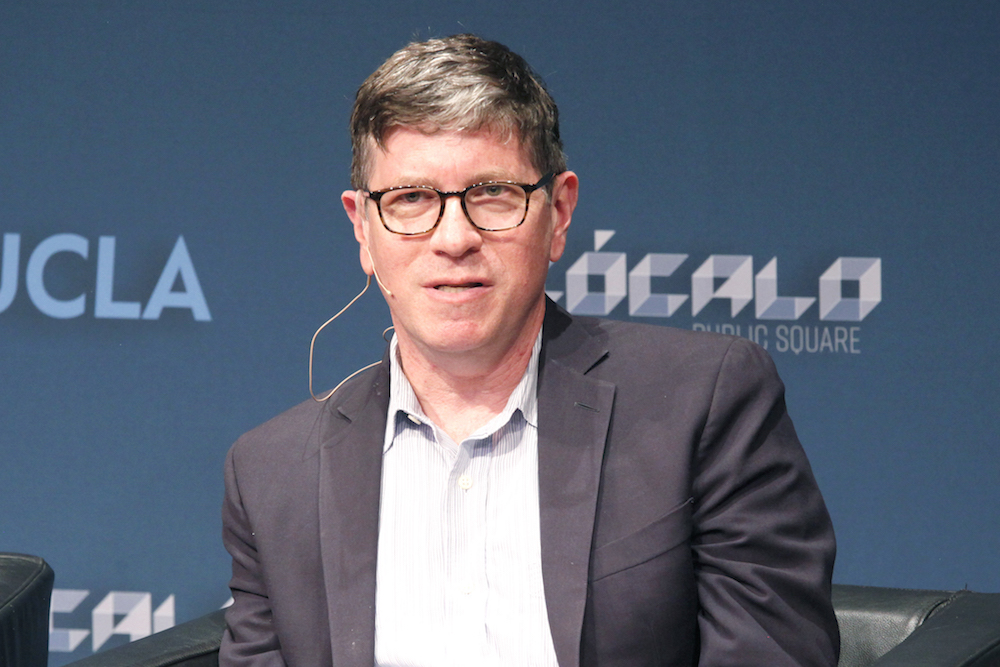
Photo by Aaron Salcido.
Sean B. Hecht is the co-executive director of the Emmett Institute on Climate Change and the Environment, and a professor of policy and practice at UCLA School of Law. He co-authored a widely cited article on the president’s authority to abolish or diminish National Monuments, “Presidents Lack the Authority to Abolish or Diminish National Monuments.” Before joining a Zócalo/UCLA Downtown panel titled “What Will California’s Coastline Look Like in 2100?” at the National Center for the Preservation of Democracy in L.A.’s Little Tokyo, Hecht spoke in the green room about the U.S. women’s soccer team, the importance of voting, and why he likes RAT beach.
What’s your favorite National Park?
I like Wind Cave National Park in South Dakota; it’s in the Black Hills area.
What’s the best book you’ve read in the past year?
Evicted by Matthew Desmond. It follows the lives of a bunch of residents of Milwaukee and the struggles that they have finding a place to live. [Desmond]’s an academic but it’s a very readable, non-academic book.
What Southern California beach could we find you at?
So there is a beach between Torrance and Palos Verdes called “RAT Beach” by the people who live near there, which I’ve been told stands for Right After Torrance. There’s this tiny little strip of beach that you have to walk down from a cliff to get to. There aren’t a lot of people there. It’s beautiful.
If you didn’t live in Los Angeles, where would you be?
I don’t know. I lived in Brooklyn for a while, and I loved it. I consider myself from Brooklyn. I lived in Michigan, and I loved that. So I guess I could be in a lot of places.
How did you get into trouble as a kid?
I talked too much and too loudly. Sometimes teachers and other adults and other parents didn’t appreciate that.
Where would we find you at 10 a.m. on a typical Saturday?
I would probably just be at home reading the newspaper.
What profession would you like to practice in your next life?
I would be a musician.
What instrument would you play?
I’m not sure. I play a lot. None well enough to be a professional musician. It would probably be a string instrument or keyboard. It would be cello or it would be guitar.
What was the last thing that inspired you?
It was the victory by the U.S. women’s soccer team. That was awesome—just the whole set of circumstances, everything about it, the personalities of women on the team.
What’s one thing that the average person can do to help combat climate change?
Vote. Vote for people who have good policies, and then tell them why it’s important to uphold those policies. Not that people can’t make a difference as individuals, but the real change, sadly, doesn’t come from the choices that you and I make in our daily lives; it comes from policies that we support.
What superpower would you most like to have?
Speed comes to mind—like, super speed; mostly because it’s the opposite of how I am athletically.



